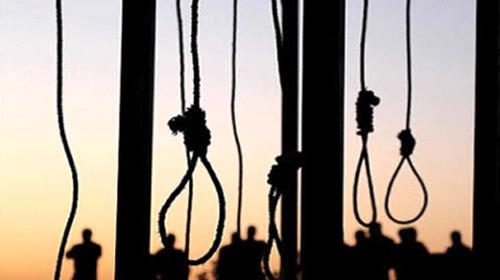By a recorded vote of 81 in favor, 30 against, and 70 abstentions, the Assembly adopted its resolution on the “Situation of human rights in Iran”.
The Iranian regime hanged eight inmates on December 20, 2017, in Rajaii Shahr Prison of Karaj, west of Tehran. The prisoners had been transferred to solitary confinement on December 18, in a group of 10, in preparation for their executions.
Four of the victims are identified as Mostafa Chardouli, Amirabbas Ardestari, Nima Esmailian and 24-year-old Hamid Abdollahi, who had been on death row since five years ago.
Two prisoners identified as Mohammad Ghobad and Ali Masoumi have had their executions scheduled but were postponed at the last minute.
The mass execution came one day after the United NationsGeneral Assembly adopted its 64th resolution on Tuesday, December 19, against violations of human right in Iran.
In another development, a prisoner was hanged on December 19 in Central Prison of Zanjan, northwestern Iran. Yasin Abedi was found guilty of murder. He had been on death row since 2012.
Another inmate identified as Mehrdad Mohammadi, 33 was hanged on December 17 in Dizel Abad Prison of Kermanshah, western Iran. He was also found guilty of murder.
Iran continues its unabated executions, defying the wave of international criticism at its human rights violations.
UN General Assembly adopted its 64th resolution on Tuesday, December 19, against violations of human right in Iran.
By a recorded vote of 81 in favor, 30 against, and 70 abstentions, the Assembly adopted its resolution on the “Situation of human rights in Iran”. The Assembly expressed serious concern over use of the death penalty and urged Iran to eliminate all discrimination and rights violations against women and girls.
The UN General Assembly expressed “serious concern at the alarmingly high frequency of the imposition and carrying-out of the death penalty… including the imposition of the death penalty against minors and persons who at the time of their offence were under the age of 18, and executions undertaken for crimes that do not qualify as the most serious crimes, on the basis of forced confessions” and called on the Iranian regime “to abolish, in law and in practice, public executions.”
Four of the victims are identified as Mostafa Chardouli, Amirabbas Ardestari, Nima Esmailian and 24-year-old Hamid Abdollahi, who had been on death row since five years ago.
Two prisoners identified as Mohammad Ghobad and Ali Masoumi have had their executions scheduled but were postponed at the last minute.
The mass execution came one day after the United NationsGeneral Assembly adopted its 64th resolution on Tuesday, December 19, against violations of human right in Iran.
In another development, a prisoner was hanged on December 19 in Central Prison of Zanjan, northwestern Iran. Yasin Abedi was found guilty of murder. He had been on death row since 2012.
Another inmate identified as Mehrdad Mohammadi, 33 was hanged on December 17 in Dizel Abad Prison of Kermanshah, western Iran. He was also found guilty of murder.
Iran continues its unabated executions, defying the wave of international criticism at its human rights violations.
UN General Assembly adopted its 64th resolution on Tuesday, December 19, against violations of human right in Iran.
By a recorded vote of 81 in favor, 30 against, and 70 abstentions, the Assembly adopted its resolution on the “Situation of human rights in Iran”. The Assembly expressed serious concern over use of the death penalty and urged Iran to eliminate all discrimination and rights violations against women and girls.
The UN General Assembly expressed “serious concern at the alarmingly high frequency of the imposition and carrying-out of the death penalty… including the imposition of the death penalty against minors and persons who at the time of their offence were under the age of 18, and executions undertaken for crimes that do not qualify as the most serious crimes, on the basis of forced confessions” and called on the Iranian regime “to abolish, in law and in practice, public executions.”

هیچ نظری موجود نیست:
ارسال یک نظر